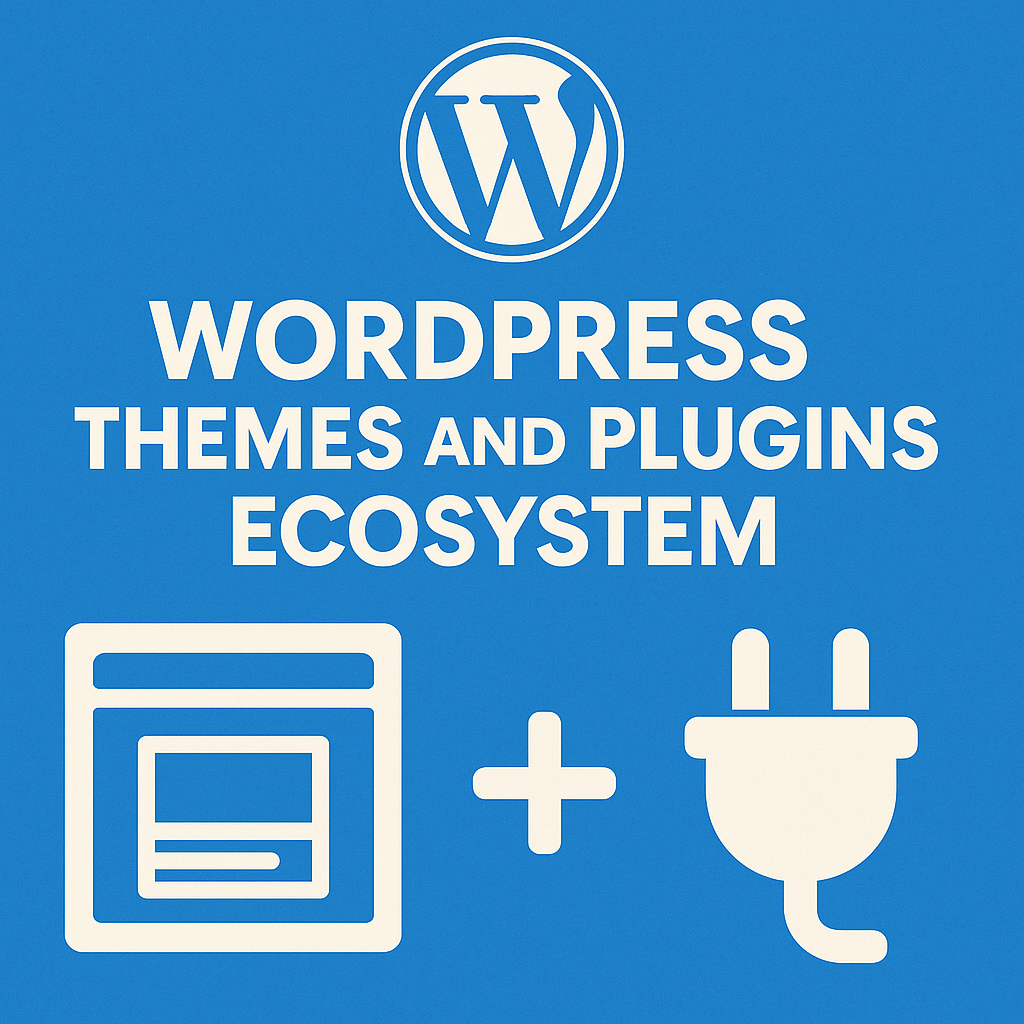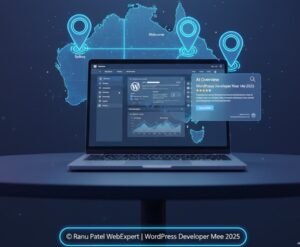Introduction
Can you believe WordPress just turned 22? What started in 2003 as a small blogging tool is now the engine behind the internet. Whether you are a developer, business owner, or casual blogger, a good chance is WordPress has touched your digital life. In this article, let’s celebrate how WordPress has changed the Internet forever.
The Humble Start of WordPress (2003)
Founders and the Original Mission
Created by Matt Mullenweg and Mike Little, WordPress B2/Captained as a thorn of software. Target? To create a publishing platform which is free, open-source and user friendly.
From Blogging Tool to Powerful CMS
Initially, WordPress was perfect for bloggers. But as the demand increased, the developers converted the code, plugins and theme-wardpress into a complete material management system (CMS).

Development of WordPress over years
Key Milestones from 2003 to 2025
-
2003: WordPress 0.7 released
-
2005: Pages introduced
-
2010: Custom post types launched
-
2015: REST API support
-
2018: Gutenberg editor introduced
-
2023: Full Site Editing (FSE) improves flexibility
-
2025: WordPress powers 43%+ of the web
Major Version Releases That Transformed Web Design
Gutenberg changed how we build content. The block editor allowed visual building with drag-and-drop elements, and it’s constantly evolving.
Open Source and the Power of Community
Contributions from Developers Around the Globe
Over 55,000 plugins and thousands of themes exist because of an open community. Coders, designers, translators, and writers all make WordPress better—every day.
WordCamp and Global Meetups
Events like WordCamp are hosted around the world. These conferences bring contributors and users together, fostering a global WordPress family.
WordPress as the Backbone of the Internet
Powering Over 43% of the Web in 2025
WordPress isn’t just a blogging platform anymore. From personal sites to Fortune 500 brands, it’s the backbone of millions of websites.
Why Developers and Businesses Love It
-
Easy to use
-
SEO-friendly
-
Highly customizable
-
Scalable for any size business
-
Massive plugin ecosystem
🎨 WordPress Themes and Plugins Ecosystem
How Themes Democratized Design
With a few clicks, anyone can build a professional-looking site. Free and premium themes have removed the need for design or coding skills.
Plugins That Changed Functionality Forever
From Yoast SEO to Elementor, plugins brought new power. Want a store? Use WooCommerce. Need contact forms? Use WPForms. The possibilities are endless.

WordPress and the Rise of eCommerce
WordPress and the Rise of eCommerce
Launched in 2011, WooCommerce converted WordPress into an ecommerce powerhouse. Today, it is used by millions to sell online products – from physical goods to digital services.
WordPress in the Age of AI and Automation
Integrations with AI Tools, Chatbots, and More
WordPress now works seamlessly with AI tools—content generators, support chatbots, SEO analyzers. This future-forward thinking keeps it ahead of the curve.
Future-Proofing with Gutenberg and Full Site Editing
Full Site Editing gives users control over headers, footers, and templates—no code required. It’s a step toward headless CMS and total flexibility.
Why WordPress Still Dominates in 2025
SEO, Flexibility, and Ownership
Unlike Wix or Shopify, WordPress gives you control of your data. With the right SEO plugins and customizations, it outperforms competitors in visibility and rankings.
Security and Performance Improvements
Recent versions focus on speed, performance, and security. Automatic updates and plugins like Wordfence keep sites safer than ever.
How WordPress Changed the Digital Economy
Freelancers, Agencies, and Entrepreneurs Thrived
WordPress created jobs. Designers, writers, marketers, and developers now make full-time incomes by building and managing WP sites.
Online Education, Blogging, and Influencer Marketing
With LMS plugins like LearnDash and MemberPress, educators monetize knowledge. Influencers manage content easily using WordPress.
The Future of WordPress Beyond 22 Years
Trends to Watch – AI, Headless CMS, and Accessibility
Expect deeper AI integration, voice-search support, enhanced accessibility features, and even more low-code/no-code features.
FAQs
WordPress was launched in 2003 by Matt Mullenweg and Mike Little as an open-source platform to simplify online publishing. It quickly evolved into a powerful CMS used by millions globally.
Because it’s free, flexible, SEO-friendly, and supported by a global community. With thousands of themes and plugins, it’s suitable for any type of website—from blogs to eCommerce stores.
Absolutely! Just search for “WordPress developer near me” and you’ll find freelancers and agencies offering local support, customization, and maintenance services.
Yes. WordPress core is regularly updated with security patches. Using reliable themes/plugins and enabling firewalls like Wordfence enhances protection further.
Choose a hosting provider, install WordPress (often in one click), pick a theme, and start customizing. You can also search for a “WordPress agency near me” if you want professional help.
🎉 Conclusion
From 2003 to 2025, WordPress has developed from a basic blogging tool in the world’s most popular website platform. It democratoized publication, supported a growing freelance economy, and empowered millions to create an online appearance. There are 22 years of innovation here – and many more coming.








